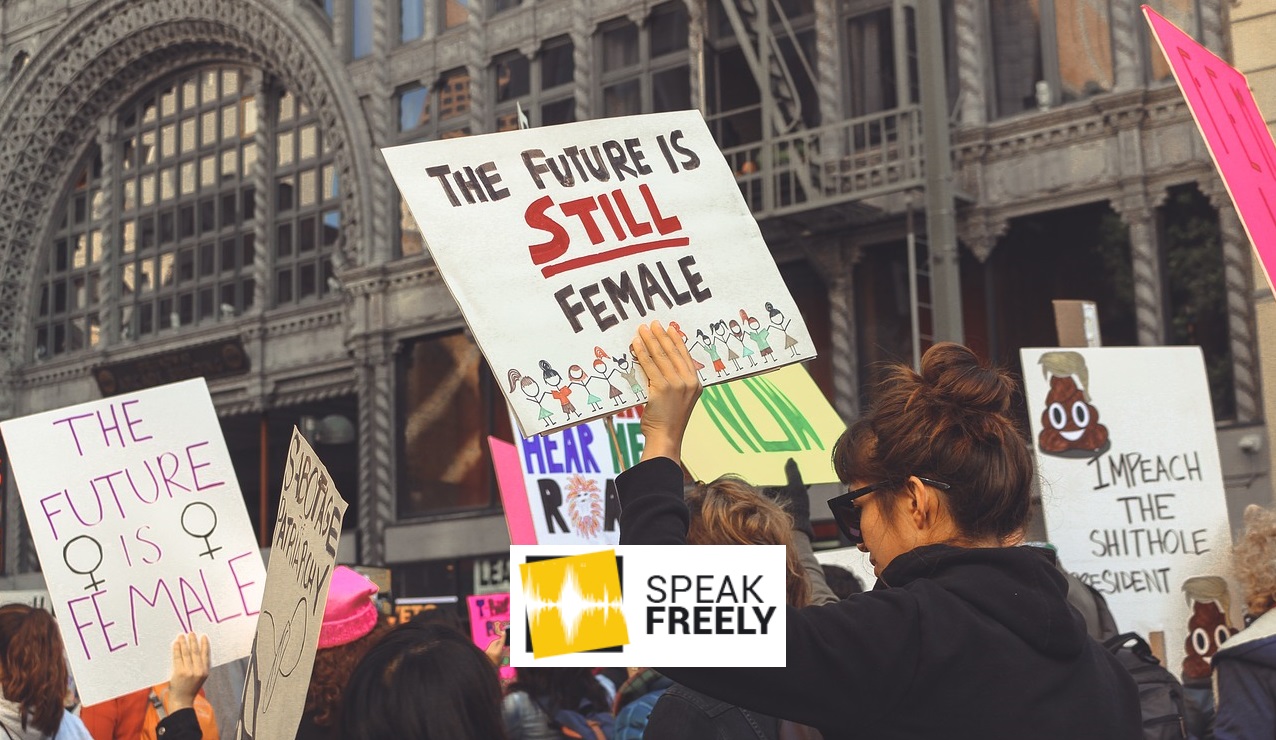Female Genital Mutilation (FGM) is one of the most barbaric crimes against women globally. The procedure involves the partial or total removal of female genital organs for cultural reasons. An estimate of 200 million women and young girls alive today have undergone the procedure.
The majority of those affected live in Northern Africa and the Middle East, but girls in other countries are also affected, with approximately 180,000 girls in Europe at risk per year. Physical effects include severe pain, trouble urinating and menstruating, problems giving birth, infections, and death. Psychological effects include strong sexual dysfunction, an absence of trust in caregivers and long-term partners, depression and anxiety.
”FGM has been a global problem for centuries, and very little has been done by American feminists to raise awareness, condemn the practice, or combat the stigma surrounding women and men who oppose the practice. When young women do make a statement in not only recognizing this as a worldwide problem, but offering an innovative solution, feminists remain silent.” writes Washington Examiner
Despite this, western feminist campaigns include; banning the word ‘bossy’, complaining about a pay gap that has been disproven multiple times, moaning because a guy on the street called them pretty, and saying air conditioners are sexist. True, various issues affect women everywhere, and comparing situations that happen in various parts of the world is unhelpful. One can say that the oppression of European women is different from the oppression of African women and that white Anglo-American feminists cannot tackle all of womankind’s problems.
Except Anglo-American women, especially middle-to-upper class white women, are not being oppressed. (This isn’t to say sexism doesn’t exist; however, ‘oppressed’ is a strong word and often too casually thrown around.) In the UK and USA, there is no legal right a man has that a woman does not have. In fact, women are typically favoured over men in some legal cases; women typically serve shorter prison sentences than men for doing the same crime, male sexual abuse victims are less likely to be taken seriously (which probably contributes to the increase in men’s mental illness), and mothers are favoured over fathers when it comes to child custody laws.
When non-feminists or non-white women ask feminists why they don’t speak for the women being oppressed under Sharia Law, or the millions of girls who undergo FGM, it’s not to sweep the problems of European women under the rug. It’s because there aren’t any legal or economic problems affecting European women anymore. The problems that modern Anglo-American feminists complain about are the ones that are social. Not that they are not issues in and of themselves, but they are issues that can be easily resolved. Catcalling is a social problem, not a political one. It’s different from a woman being denied the right to an education, to safe contraception, or to protection against marital rape.
Wealthy white women have historically enjoyed privileges that working-class white women or non-white women can only dream about. When Betty Friedan wrote The Feminine Mystique, she was addressing bored housewives lounging in the suburban home their husbands had bought for them. The Suffragettes, while brilliant within their cause, were representing a minority of wealthy white women. They weren’t speaking up for the issues facing poor or ethnic women. I know nowadays ‘intersectional feminism’ claims to be for all women, yet I still don’t see any mass campaigns like the #metoo or #timesup movements that speak out against FGM or the treatment of women under Sharia Law.
Where’s #timesup for FGM? Why don’t these white feminists stand up and fight for a serious and worthy cause? Is it because it’s not in their interest? Could it be that a mass protest against the sexual and physical violence against women in African and Middle Eastern states does nothing to help the noble Anglo-American feminist cause of women not having the right to leave their legs unshaven?
This piece solely expresses the opinion of the author and not necessarily the organisation as a whole. Students For Liberty is committed to facilitating a broad dialogue for liberty, representing a variety of opinions. If you’re a student interested in presenting your perspective on this blog, click here to submit a guest post!
Image: Pixabay
